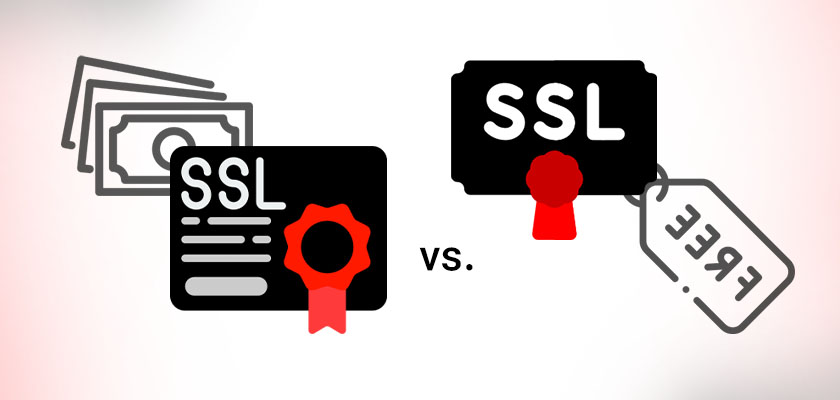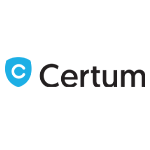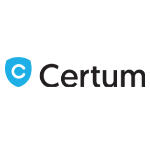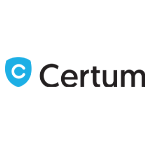
Webmasters have been concerned about the safety of their websites. The moment that Google introduced their “HTTPS Everywhere” initiative in 2014 (by providing a higher ranking for “HTTPS” websites in their search results), the SSL Certificate became an important priority for webmasters. In the following years, Chrome and Firefox began warning every HTTP website as being not secure. This, alone, will forever alter the SSL web.
With SSL Certificates being almost an absolute requirement to protect your site and improve SEO (your site will not appear on search engine results if you don’t have it), Everyone must get one. Yet, a large number of businesses and developers are unable to make a decision between getting any of the free SSL Certificates offered by Let’s Encrypt, Cloudflare, or Amazon, or they are yet to buy SSL certificate from a reliable SSL supplier. Hopefully, by the end of this article, you’ll ask yourself how to change HTTP to HTTPS.
What Is an SSL Certificate?
An SSL Certificate secures sensitive information like passwords for credit cards, numbers on credit cards, and personal information. An SSL certificate is also used to verify the legitimacy of a site by verifying the owner of the website.
The most important benefit associated with the SSL certificate is that it provides security for information transmitted via the Internet. This makes it difficult for malicious users to access or intercept the information. The SSL certificate ensures that the data transmitted from computer users to your website server is confidential and safe. The best free SSL certificate will also increase trust among customers because they show that your site takes its security very extremely.
What Is a Free SSL Certificate?
As the title suggests, SSL certificates do not come with any cost that they are affixed to. The reason for making an SSL certificate accessible at no charge was to provide the use of HTTPS accessible to all sites.
The free SSL certificates fall into two categories. Self-Signed certificates are ones where there’s no requirement for a Certificate Authority to sign them. They are issued by the issuer himself. In contrast, the other type of free SSL certificate that is available on the marketplace has been signed by CA. Authorities (CA). In terms of the degree of security concerned, the free SSL certificate offers the same degree of security as the premium one.
What Is a Paid SSL Certificate?
For a site to be equipped with certificates of this kind, you are required to purchase them. The certificate that is paid for is signed and issued by a trusted certification authority (CA). You can either purchase it directly on the official website of the certificate authority or buy it through third-party companies called “Resellers”.
In terms of the degree of security, as it relates to encryption, a free SSL certificate offers the same amount of security as a paid SSL certificate. Perhaps you are thinking, ‘Why should I spend money on this certificate when I am able to get it at no cost?
There are a few significant differences between them.
Key Differences: Free vs. Paid SSL

Type of SSL Certificate
The free SSL certificates come only with a Domain Validation (DV) option. DV certificates are utilized only to provide a minimum degree of security. Most often, they’re employed for sites like small sites and blogs. SSL certificates do not have the ability to use Organization Validation (OV) and Extended Validation (EV) certificates. However, the premium SSL certificates come with OV and EV certificates that are essential to safeguard businesses’ websites.
Level of Validation
In the case of verifying the details of a business owner’s website prior to issuing a certificate for free, CA does not validate anything other than the name of the webmaster. In the case of paying for SSL certificates, confirmation of the identity of the owner of the site is essential prior to granting the certificate to the website owner. In the instance of OV and EV certificates, a thorough verification of the enterprise is performed by the authority that issues certificates (CA).
Validity Period
The free SSL certificates issued by well-known CAs can be used for 30 to 90 days. This means that the webmaster is required to renew the certificate each 30 to 90 days. If the certificate is the certificate that is paid for, it may be granted for a time that is period of one to two years.
Support
Certificate authorities (CAs) and the resellers of certified certificates are dedicated to offering 24/7 customer support. They can pick the type of service they would like, either via chat, email, or a phone call. In contrast, the free SSL providers don’t provide their clients with this level of help because they aren’t able to. If you require assistance with an issue with free SSL, it is likely that you’ll need to go through hundreds of forums for the answer.
Level of Trust
In the past, the best free SSL certificates were used to help with the validation of domains, but only if one is looking to purchase an OV or EV certificate, then there is only one option: go to the paid SSL certificates. With certificates OV and EV come visual signs like the company’s name in the URL as well as Certificate information as well as better seals for websites. However, free SSL certificates do not provide these privileges.
Warranty
When you buy an SSL certificate, if something occurs on the part of the CA, like the catastrophic loss of their PKI, such as a catastrophic failure of their PKI, you’re out of chance. Paid SSL certificates aren’t affected by this problem, as they are backed by warranties that cover anything from 10 thousand dollars to 1.75 million dollars.
Which SSL/TLS Certificate Is Ideal for E-commerce Websites?
The importance of trust is paramount in every relationship, and eCommerce websites are no exception. Nobody will want to divulge personal information, such as credit card numbers or other data if there is no trust. Genuinely trusted websites display the security of their site in a way that will be easily identifiable by the end user.
Take a look at any survey or additional information. It will be clear that SSL/TLS Certificates that have been paid, i.e., organizations Validated (OV) and extended Validated (EV) from authentic Certificate Authorities, following an extensive investigation of the business. Additionally, it provides tangible trust indicators such as the site security seal and logo of the company in the address bar of browsers to ensure that customers feel secure and safe when sharing payment details that are not available in the free SSL Certificates.
Conclusion
Let’s Encrypt is the ideal spot to start if you are only beginning to discover the possibilities of HTTPS. Google, as well as other popular web browsers, have urged every site to use HTTPS. This makes this option particularly useful for small websites and blogs. As mentioned, if you are a small blog and aren’t processing any payment on your website, the free SSL certificate may be good enough. However, if you are an eCommerce website, it is crucial to invest and buy an SSL certificate.










Leave a Reply